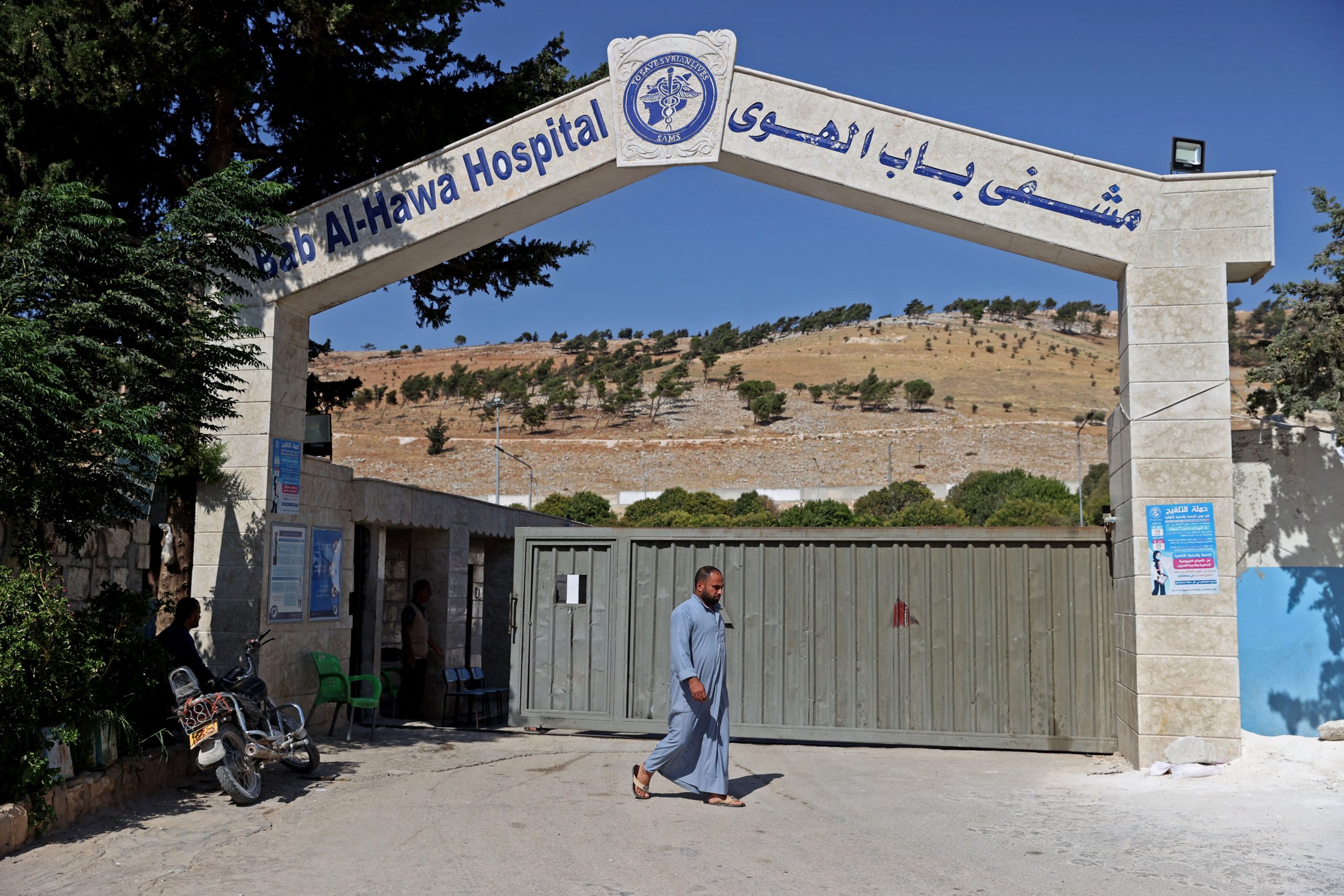Bab al-Hawa Hospital, one of the largest medical facilities in northwestern Syria, is facing a severe crisis as its funding is set to end this month, according to a statement released by the hospital administration today. The hospital, which has been providing comprehensive medical services for over a decade, may be forced to close its doors by the end of September unless immediate support is secured.
Established 11 years ago, Bab al-Hawa Hospital has become a cornerstone of the region’s healthcare system. It offers a wide range of services, including primary and secondary care, emergency treatment, specialized surgeries, and oncology services. Serving over 1.7 million people—both local residents and displaced persons in nearby camps—the hospital plays a critical role in addressing medical needs in a region severely impacted by conflict, military operations, and accidents.
In the statement, the hospital administration emphasized their ongoing efforts in collaboration with the Syrian American Medical Society (SAMS) to ensure the continuity of services, warning that a “severe funding shortage” could lead to the shutdown of all operations.
Karam al-Sheikh Ali, the media director for the Idlib Health Directorate, told Al-Araby Al-Jadeed that discussions with donors began a month ago in an attempt to resolve the funding crisis. The hospital’s location in a densely populated area, combined with its role in treating victims of daily accidents and critical injuries, makes it indispensable for the region. Among its vital services are pediatric surgery, neurosurgery, and a drug delivery service for cancer patients, which is only available in this hospital and the governorate hospital in Idlib.
Despite ongoing talks with local and international partners, there has been no positive response or indication that the necessary support will be provided.
Saeed al-Sharifi, a displaced resident from southern Idlib now living near the hospital in Babsqa, shared his concerns with Al-Araby Al-Jadeed: “The closure of Bab al-Hawa Hospital would be catastrophic for northern Syria. My brother was involved in a near-fatal traffic accident last year, and if it weren’t for the hospital’s comprehensive services, he wouldn’t have survived.” He added that the hospital is the primary facility for critical cases across Idlib, Hama, Aleppo, and Latakia.
Al-Sharifi also pointed out that other hospitals in Idlib have already lost funding, placing even more pressure on Bab al-Hawa Hospital. “Cutting support for this hospital would be a crime against millions of people in the region, both displaced and local. It must not only be sustained but also expanded to meet the growing needs.”
The hospital offers a variety of specialized clinics, including ophthalmology, cardiology, urology, and general surgery. It also operates a reservation system through the WhatsApp app, allowing patients to schedule appointments for care.
As the deadline for funding approaches, the future of Bab al-Hawa Hospital remains uncertain, leaving the region’s residents deeply concerned about the potential loss of a critical lifeline.
This article was translated and edited by The Syrian Observer. The Syrian Observer has not verified the content of this story. Responsibility for the information and views set out in this article lies entirely with the author.


